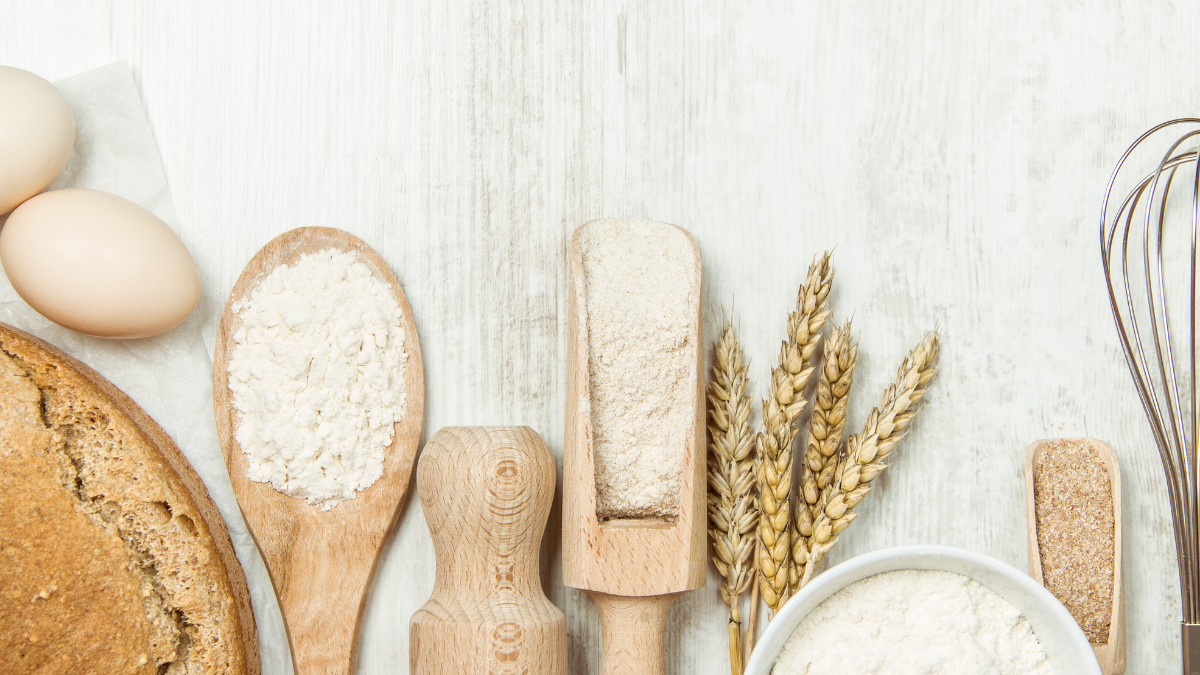
Organic flour is becoming increasingly popular among health-conscious consumers and those looking to elevate their baking and cooking. Not only does organic flour offer health benefits, but it also enhances the flavor and texture of your dishes. Let's explore the magic of organic flour and how you can incorporate it into your favorite recipes.
Benefits of Organic Flour
1. Nutrient-rich
- Organic flour is produced from grains that are grown without the use of synthetic pesticides, herbicides, or fertilizers.
- This means that organic flour retains more nutrients compared to conventional flour, making it a healthier choice.
- It is rich in vitamins, minerals, and antioxidants, which are essential for overall health.
2. Free from harmful chemicals
- Conventional flours may contain residues of harmful chemicals used in the farming process.
- Organic flour, on the other hand, is free from these chemicals, making it a safer option for consumption.
- By choosing organic flour, you can reduce your exposure to potentially harmful substances.
3. Better for the environment
- Organic farming practices promote soil health, biodiversity, and sustainable agriculture.
- By opting for organic flour, you are supporting environmentally-friendly practices that help preserve our planet.
- It is a more sustainable choice that contributes to a healthier ecosystem.
Types of Organic Flour
1. Whole Wheat Flour
- Retains all parts of the wheat kernel, including the bran, germ, and endosperm, making it rich in nutrients and fiber.
- Has a nutty flavor and a slightly denser texture, making it ideal for bread and baked goods.
2. All-Purpose Flour
- A versatile flour that can be used for a variety of recipes, including baking, breading, and thickening sauces.
- Provides a balance between protein content and gluten development, resulting in good structure and texture in baked goods.
3. Spelt Flour
- An ancient grain flour that is rich in protein, fiber, and minerals.
- Has a slightly sweet and nutty flavor, making it a great alternative to wheat flour in recipes.
- Works well in bread, pasta, and pastry recipes.
How to Use Organic Flour in Your Recipes
1. Baking
- Substitute organic flour in place of conventional flour in your baking recipes for a healthier and tastier outcome.
- Experiment with different types of organic flour, such as whole wheat, spelt, or pastry flour, to enhance the flavor and texture of your baked goods.
- Adjust the liquid content in your recipes when using organic flour, as it may absorb more moisture than conventional flour.
2. Cooking
- Use organic flour to thicken sauces, soups, and stews for a rich and velvety texture.
- Dredge meats and vegetables in organic flour before frying or sautéing to create a crispy and golden crust.
- Add organic flour to your homemade pasta dough for a tender and flavorful pasta.
3. Gluten-Free Alternatives
- Explore gluten-free organic flour options, such as almond flour, coconut flour, or chickpea flour, for those with dietary restrictions.
- These flours can be used in place of traditional flours in recipes to accommodate gluten-free diets while still maintaining flavor and texture.
- Experiment with different gluten-free organic flours to find the perfect substitute for your favorite dishes.
Conclusion
Organic flour offers a range of health benefits, from being nutrient-rich to free from harmful chemicals. By incorporating organic flour into your recipes, you can enjoy delicious and wholesome meals that nourish your body and support sustainable farming practices. Whether you're baking bread, making pasta, or thickening sauces, organic flour adds a touch of magic to your culinary creations.